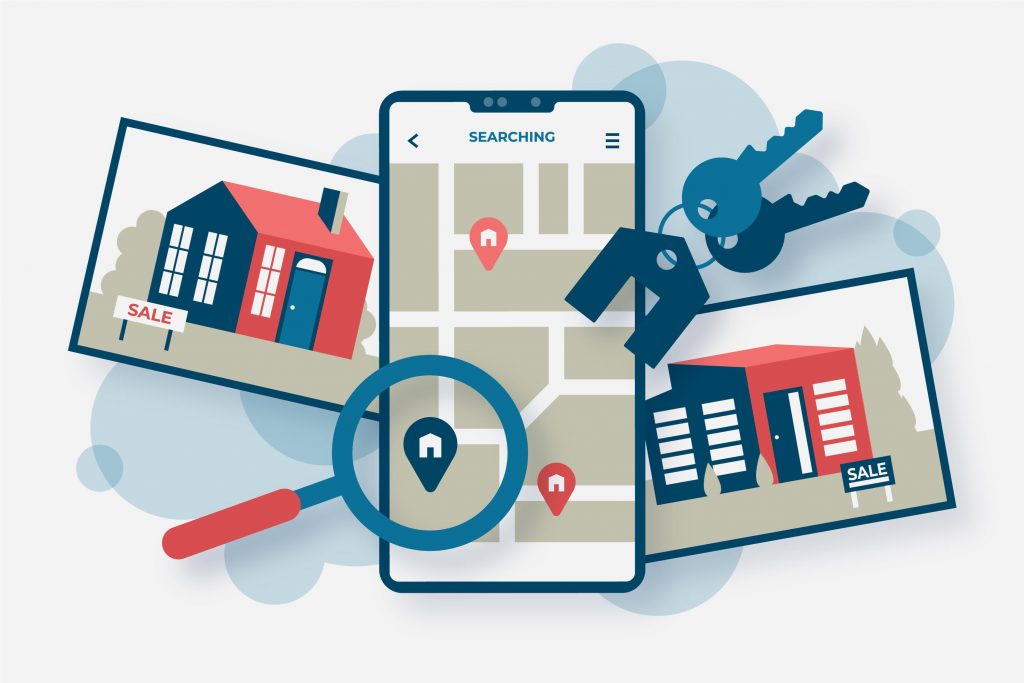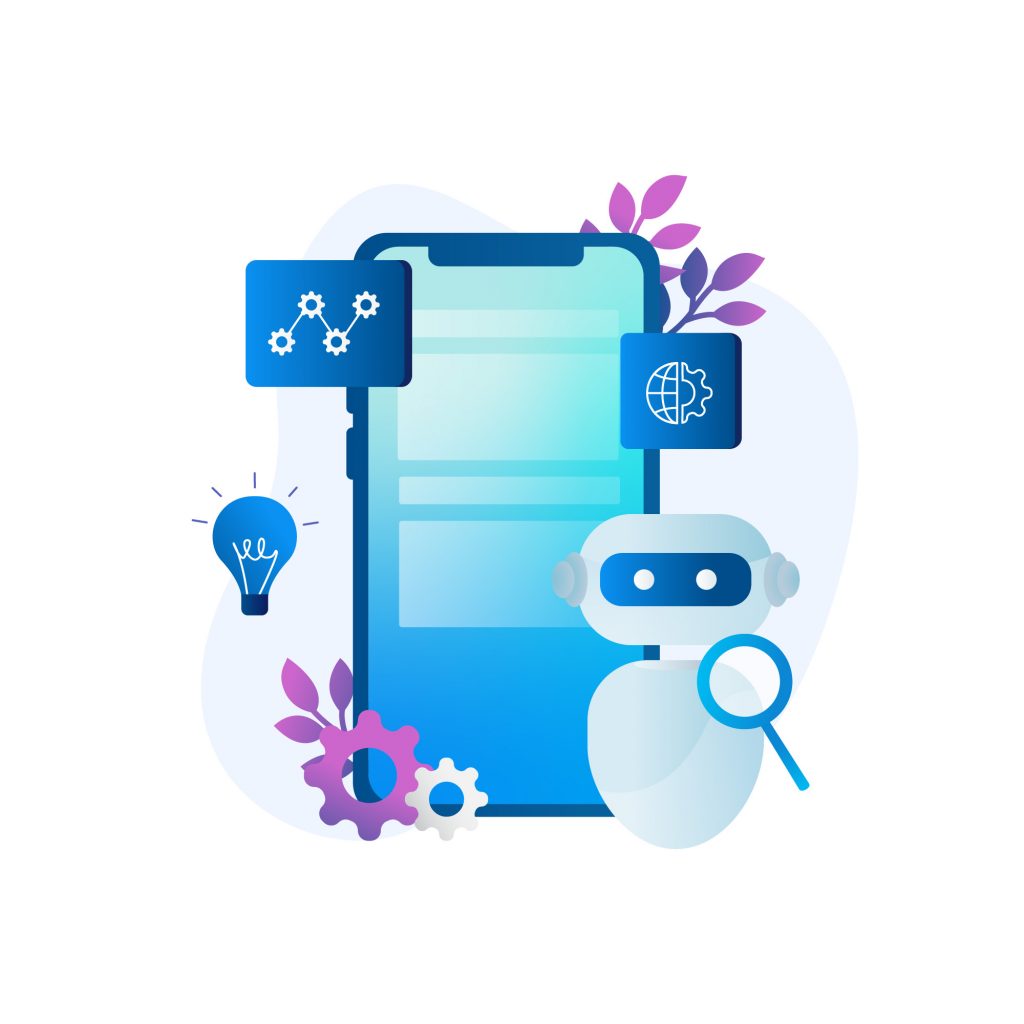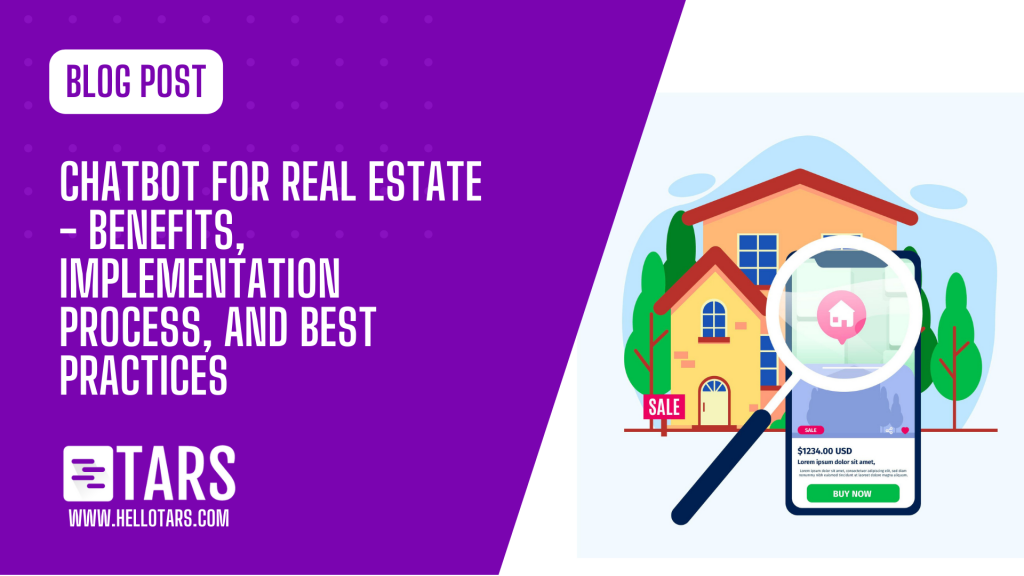Real estate is an industry that involves a lot of communication, both with potential customers and existing clients. By using a chatbot for real estate services, companies can automate a lot of these communication processes and also provide personalized service while saving a ton of money and time.
In this article, we’ll explore the benefits of chatbots in real estate, the implementation process, and the best practices to follow.
You can also interact with some of our pre-built real estate chatbot templates by clicking here.
Benefits of Chatbots in Real Estate
Improved Customer Service

One of the primary benefits of chatbots in real estate is the ability to provide improved customer service.
✅Chatbots can offer 24/7 availability, meaning that customers can interact with them at any time.
✅Additionally, chatbots can provide quick and accurate responses to customers’ queries, which can improve their overall experience with the business.
Lead Generation and Qualification

Another benefit of chatbots in real estate is their ability to generate and qualify leads.
✅Chatbots can automate the lead collection process, allowing real estate businesses to collect information about potential clients without manual effort.
✅Chatbots can also qualify leads based on specific criteria, helping businesses to prioritize their resources and focus on the most promising leads.
Personalization

Chatbots can also provide personalized experiences to customers. By using data about customers’ preferences and behaviors, chatbots can offer customized recommendations and interactions.
For example, a chatbot could recommend properties that fit a customer’s specific criteria, or provide information about properties that the customer has previously expressed interest in.
Streamlined Property Search

Chatbots can help customers streamline their property search by allowing them to input their preferences and receive personalized recommendations. This can help customers save time and energy in the search process, and increase the likelihood of finding the perfect property.
Improved Customer Feedback

Chatbots can help real estate businesses collect and analyze customer feedback more effectively. By automating the feedback process, chatbots can help businesses gather data more quickly and easily, and use this data to improve their services and customer experiences.
Increased Engagement

Chatbots can help real estate businesses increase customer engagement by providing interactive and engaging experiences.
This can include features such as:
✅virtual tours,
✅property videos, and
✅interactive maps,
all of which can help customers feel more engaged with the property and the real estate business.
Cost Savings

Chatbots can help real estate businesses save money by reducing the need for human labor and resources. This can lead to significant cost savings over time, particularly for businesses with high volumes of customer inquiries and lead-generation activities.
Competitive Advantage

By implementing a chatbot for real estate, businesses can gain a competitive advantage over their competitors. Customers are increasingly looking for businesses that can provide quick and convenient communication and a personalized experience, and chatbots can help businesses meet these expectations.
Implementation Process of Chatbots in Real Estate

To implement a chatbot for real estate, businesses should follow the following process:
Step 1: Defining Objectives and Use Cases
Before implementing a chatbot, businesses should define their objectives and use cases. For example, a business may want to implement a chatbot to handle customer inquiries, or to automate lead collection.
Step 2: Choosing the Right Platform
The next step is to choose the right platform for the chatbot. There are many chatbot platforms available, each with their own features and capabilities. Businesses should choose a platform that fits their specific needs and budget.
Step 3: Designing the Chatbot
The chatbot should be designed with the customer in mind. This includes scripting the conversation and designing the user interface. The chatbot should be easy to use and navigate, with clear prompts and responses.
Step 4: Integration with Existing Tools and Systems
The chatbot should be integrated with existing tools and systems, such as CRM software or email marketing platforms. This will ensure that the chatbot can collect and store information about customers and leads.
Step 5: Testing and Launching the Chatbot
Before launching the chatbot, businesses should test it thoroughly to ensure that it is working as intended. Once the chatbot has been tested and any issues have been resolved, it can be launched for use by customers.
🎯Feeling a little confused? Book a free demo and we can take care of the entire implementation process for you from – planning and creation to testing and deployment.
Best Practices for Chatbots in Real Estate

To get the most out of a chatbot for real estate, businesses should follow these best practices:
Natural Language Processing
Chatbots should use natural language processing to ensure that conversations with customers are fluid and natural. This means that the chatbot should be able to understand and respond to conversational language, rather than relying on strict commands.
Use of Visuals and Multimedia
To enhance the customer experience, chatbots should use visuals and multimedia. This can include images of properties, videos of virtual tours, or even interactive maps to show the location of a property.
Continuous Improvement and Monitoring
To ensure that the chatbot is providing the best possible experience for customers, it should be continuously monitored and improved. This can involve tracking metrics such as response times and customer satisfaction, and making changes to the chatbot as needed.
Compliance with Regulations and Data Privacy
Real estate businesses should ensure that their chatbot complies with any relevant regulations and data privacy laws. This includes obtaining consent from customers before collecting their personal information, and ensuring that the chatbot does not discriminate against any protected classes.
Clear Communication and Transparency
Lastly, businesses should ensure that the chatbot communicates clearly and transparently with customers. This means providing clear information about what the chatbot can and cannot do, as well as how customers’ data will be used.
Need a Chatbot for Your Real Estate Business? We Can Help

Simply book a free demo and our team of experts will walk you through the entire process.
Here is what we offer:
✅An expert team that prioritizes your needs and will help you design a chatbot tailored to your business requirements.
✅Highly customizable chatbots that reflect your brand’s identity and can be integrated with your preferred CRM or existing systems
✅Expert implementation team to take care of the entire implementation process and provide ongoing support post-implementation
✅Extensive data analytics for tracking conversation details
✅Omnichannel chatbots that can be integrated with websites, mobile apps, and text messages (SMS)
✅A dedicated CS executive to handle any future changes or optimizations that you may need.
TARS is trusted by big names like Vodafone, American Express, Nestle, Adobe, and many more. And I assure you that you can trust us too 😉 Don’t believe me? Simply book a free demo and find out for yourself.

Ish is the co-founder at Tars. His day-to-day activities primarily involve making sure that the Tars tech team doesn’t burn the office to the ground. In the process, Ish has become the world champion at using a fire extinguisher and intends to participate in the World Fire Extinguisher championship next year.

0 Comments on "Chatbot for Real Estate – Benefits, Implementation Process, and Best Practices"